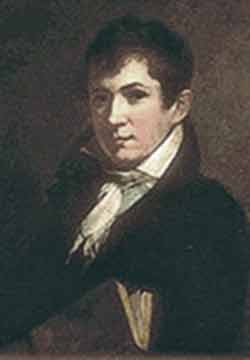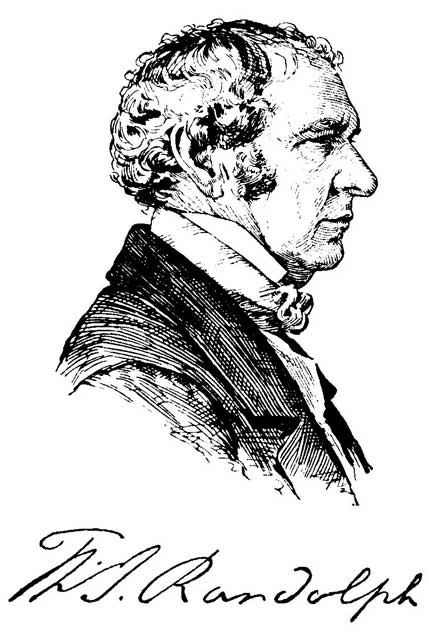want of capital

T.J. Randolph as a young man. Thomas Jefferson Randolph (1792-1875), the son of Martha Jefferson and Thomas Mann Randolph, Jr., married Jane Hollins Nicholas (1798-1871) of Mount Warren on 6 March 1815. They lived at Edgehill and had seven daughters.
For a time so much debt was washed aboard that it looked doubtful whether the mill would ever do more than pay the interest and principal on these borrowed funds. A glance at the first years will reveal how serious the problem was. In 1869, after normal operating costs were paid, a sum of $9,000 remained. But interest payments consumed $4,000, leaving hardly half as net profit. After a disastrous flood washed out all production for twelve months in 1870, the next year proved almost a duplicate of the preceding period. During the years 1869, 1871, and 1872, interest outlay represented a lost dividend of almost sixteen percent!
"What a comment," cried T. J. Randolph, "on the entire want of capital in Virginia..." Stockholders moaned, too. The only dividend paid during the four-year period was one of ten percent declared for 1869. Even in that case actual payment was deferred for two years, unless the shareholder would accept it in the form of script redeemable for products of the mill at retail prices.--Harry Poindexter
Labels: Poindexter History, Randolph

